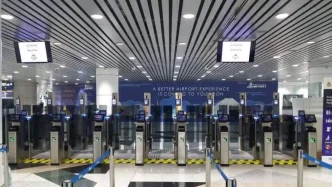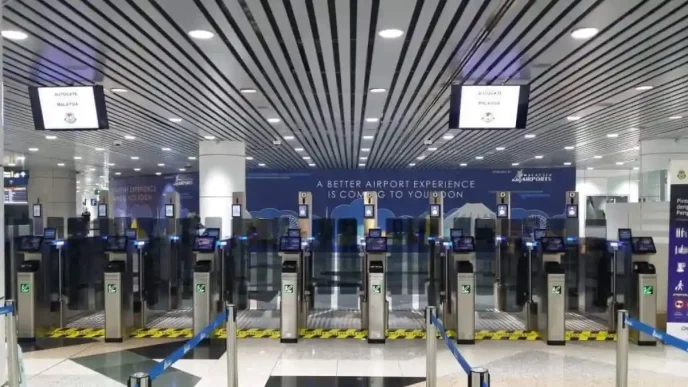A staggering 40,000 civil servants in Malaysia have been identified as being at high risk of mental health issues, including depression, anxiety, substance abuse, and suicidal behaviour. This alarming statistic has prompted urgent calls from trade unions and mental health advocates for enhanced support systems, spotlighting the expansion of the One-Stop Social Support Centre (PSSS) as a critical step forward. As the backbone of Malaysia’s public services, the mental well-being of these workers is increasingly seen as a national priority, with implications for governance and public service delivery.
The Congress of Union of Employees in the Public and Civil Services (Cuepacs) has been vocal in advocating for better access to psychosocial support. Cuepacs president Datuk Dr Adnan Mat has highlighted the low awareness of PSSS among civil servants, describing it as a significant barrier to accessing help. “To ensure more civil servants benefit from these services, we need more aggressive awareness campaigns and the placement of PSSS information in every government agency,” he said in a recent interview. Dr Adnan also proposed permanent PSSS centres in strategic locations such as government complexes, hospitals, and city centres to improve accessibility.
A Shared Responsibility
Mental health advocates echo these calls for action. Anita Abu Bakar, founder and president of the Mental Illness Awareness and Support Association (Miasa) Malaysia, praised the PSSS initiative as a “positive and progressive step” in addressing complex mental health and social issues. She emphasised the importance of early intervention, particularly for high-risk groups like civil servants and the homeless. “Mental health is a shared responsibility,” she noted, pointing to the collaborative efforts among the government, non-governmental organisations (NGOs), and employers as a model for progress.
Anita also urged for the expansion of PSSS services to more locations nationwide, arguing that wider access could strengthen public awareness of mental health challenges. “It’s important to integrate educational programmes and crisis intervention training to increase mental health awareness,” she added. Her vision is for a comprehensive, ongoing effort that requires sustained commitment from all stakeholders.
Root Causes of Stress
The mental health crisis among civil servants is driven by a confluence of factors, according to Dr Adnan. Heavy workloads, often exacerbated by pressure to meet key performance indicators (KPIs), are a primary concern. Understaffing and rising job demands further compound the stress, while financial pressures due to the increasing cost of living add another layer of strain. Workplace conflicts, work-life imbalance, and job uncertainty also contribute to the deteriorating mental health of public sector workers.
To address these systemic issues, Cuepacs has proposed a multi-faceted approach. This includes onsite counselling, safe channels for lodging complaints, greater work flexibility, subsidies for mental health treatment, and regular training to equip employees with coping mechanisms. Dr Adnan stressed that prioritising mental health is not just a matter of employee welfare but a necessity for maintaining the efficiency of public services. “The mental health of civil servants must be a government priority as it directly impacts public service performance,” he said.
The Role of PSSS
The PSSS, an initiative under the National Welfare Foundation (YKN), offers holistic psychosocial support, including guidance and counselling services for the broader community. Last year, YKN conducted 208 programmes through its PSSS network, which includes six mobile centres based on geographical zones and two permanent premises in Kuala Lumpur and Kelantan. The centres have handled referrals for a wide range of issues, from mental health and financial stress to domestic violence and sexual harassment.
However, challenges remain. Dr Adnan pointed out the need for confidentiality to prevent stigma, suggesting special counselling sessions tailored for civil servants by professionals familiar with public sector stressors. He also advocated for early intervention through regular mental health screenings to detect and address issues before they escalate.
Broader Implications for Malaysia
The mental health crisis among civil servants is not an isolated issue but reflects broader societal challenges in Malaysia. With a workforce of over 1.6 million in the public sector, the well-being of civil servants is intricately linked to the nation’s administrative capacity. Poor mental health can lead to reduced productivity, higher absenteeism, and even errors in public service delivery, which could undermine public trust in government institutions.
Moreover, the stigma surrounding mental health in Malaysia remains a significant barrier. Cultural attitudes often discourage open discussions about mental well-being, particularly in professional settings. This is why initiatives like PSSS are seen as vital—they not only provide direct support but also contribute to normalising conversations about mental health. If expanded and optimised as suggested, PSSS could serve as a blueprint for other sectors facing similar challenges.
A Call for Systemic Change
The current situation also raises questions about workplace policies in the public sector. Are KPIs and performance metrics inadvertently contributing to employee burnout? Could more flexible working arrangements or better staffing levels alleviate some of the pressures? These are questions that ministries, the Public Service Department, and trade unions must grapple with collaboratively. Dr Adnan’s call for joint action underscores the need for a systemic approach rather than piecemeal solutions.
Anita Abu Bakar’s emphasis on community-friendly services also hints at the potential for PSSS to evolve beyond a support mechanism into a platform for education and advocacy. By integrating mental health awareness into public discourse, Malaysia could foster a more supportive environment for all its citizens, not just civil servants.
Looking Ahead
The path forward requires a delicate balance of immediate action and long-term planning. Expanding PSSS services and increasing awareness are critical first steps, but they must be accompanied by broader reforms to address the root causes of mental health issues. This includes revisiting workload expectations, improving financial support for employees, and ensuring that mental health resources are not just available but actively promoted.
If these measures are implemented effectively, they could set a precedent for other countries in the region facing similar issues. Malaysia has the opportunity to lead by example, demonstrating that mental health is not a peripheral concern but a cornerstone of a functioning society. As Anita Abu Bakar aptly put it, mental health efforts must be “comprehensive and ongoing,” requiring unwavering commitment from all corners of society.
For now, the focus remains on the 40,000 civil servants at risk. Their well-being is a litmus test for Malaysia’s commitment to its public workforce. With initiatives like PSSS gaining traction, there is hope that support will reach those who need it most—but only if the government, NGOs, and employers continue to work hand in hand.














